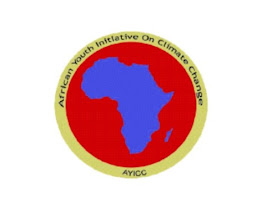A Close Encounter with COP Negotiations
Who knew the grammar we learned in school would have such relevance later on...
That placing a comma versus not, can have the potential to cause deadlock in negotiations almost seems nonsensical but it isn't.
Familiarity with acronyms and reading up on what issues are on the table is helpful for meaningful engagement with COP processes, otherwise you float and that can be excruciating. Getting to wear the Pink badge seems easy enough...huh! The first hurdle is to get a slot on the delegation, being a non-state actor means lobbying [negotiating] for this starting from home before departure to wherever the COP will be. What determines success is how the giver perceives you...are you a friend or foe?
So you pass the test...at the registration desk you give your name, country and say Party...your name is on the list, you're good to go...only thing about the Pink, you can't be acting like the activist you are.
Next what issues to follow...so many choices so little time...you choose and begin attending the closed door sessions at a given time and place. However not all Pink badges are equal, some are more equal than others. This applies to those within a delegation and of course to certain countries who wield power in the world.
In a delegation, only specific delegates can speak on behalf of the the country...they are the in public sector [government]...but because we got skills we get to input into whatever interventions [statements] they make. It feels good when your input makes it through to becoming a COP decision.
Country team meetings with all delegates both Party and observer makes for interesting strategy sessions when there's back and forth between the government and non-state actor folks when we share what "word" on the street is. When this kind of interaction becomes a natural part of preparations starting from home, then the whole team gels in a beautiful way. If it starts at a COP there's the flexing of muscles, what can you possibly contribute? kinda unspoken vibe going on. We have for the most part moved beyond the latter.
So why take part in COP negotiations in the first place? Where else can you influence your country's thinking about possible consequences for certain actions on the ordinary citizen? Whether they listen or not is not really the point; for me the point is that they know that you know that they will need you and who you represent to get by at home at some point.
Frustrations abound in negotiations...but also victorious outcomes do pop up from time to time.
COP negotiations may not be for everybody...but all parts feed into the whole...human-ness in tackling the challenge of climate change.
By: Susy Wandera
That placing a comma versus not, can have the potential to cause deadlock in negotiations almost seems nonsensical but it isn't.
Familiarity with acronyms and reading up on what issues are on the table is helpful for meaningful engagement with COP processes, otherwise you float and that can be excruciating. Getting to wear the Pink badge seems easy enough...huh! The first hurdle is to get a slot on the delegation, being a non-state actor means lobbying [negotiating] for this starting from home before departure to wherever the COP will be. What determines success is how the giver perceives you...are you a friend or foe?
So you pass the test...at the registration desk you give your name, country and say Party...your name is on the list, you're good to go...only thing about the Pink, you can't be acting like the activist you are.
Next what issues to follow...so many choices so little time...you choose and begin attending the closed door sessions at a given time and place. However not all Pink badges are equal, some are more equal than others. This applies to those within a delegation and of course to certain countries who wield power in the world.
In a delegation, only specific delegates can speak on behalf of the the country...they are the in public sector [government]...but because we got skills we get to input into whatever interventions [statements] they make. It feels good when your input makes it through to becoming a COP decision.
Country team meetings with all delegates both Party and observer makes for interesting strategy sessions when there's back and forth between the government and non-state actor folks when we share what "word" on the street is. When this kind of interaction becomes a natural part of preparations starting from home, then the whole team gels in a beautiful way. If it starts at a COP there's the flexing of muscles, what can you possibly contribute? kinda unspoken vibe going on. We have for the most part moved beyond the latter.
So why take part in COP negotiations in the first place? Where else can you influence your country's thinking about possible consequences for certain actions on the ordinary citizen? Whether they listen or not is not really the point; for me the point is that they know that you know that they will need you and who you represent to get by at home at some point.
Frustrations abound in negotiations...but also victorious outcomes do pop up from time to time.
COP negotiations may not be for everybody...but all parts feed into the whole...human-ness in tackling the challenge of climate change.
By: Susy Wandera

Comments
Post a Comment